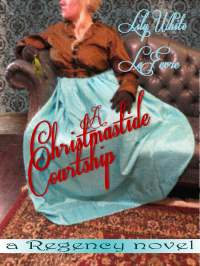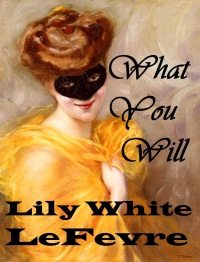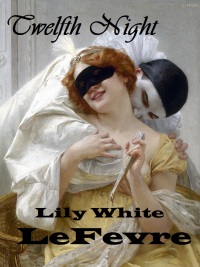I was talking to my husband about publishing over dinner the other night, trying to explain to him why I’m not going to be pursuing a traditional publisher any time soon and what it would take for me to do so. He listened to my description of the rights grabs and the eternal shelf-life of digital and the low royalty rates, and said, “Well, when a business is failing from being outcompeted, sometimes it trims the fat and fixes the problem and sometimes it just grabs everything it can before it goes under.” Obviously big publishing is doing the latter.
I told him that what I would require to even consider a publisher is a 50% split on cover price for digital, and that even then the publisher would have to work to convince me they are worth 50% of my book forever. If they really focus on “distribution and promotion” as he called it, then maybe.
Anyway, I thought it might be fun to think about what the actual cost to a publisher would be to put an ebook together, therefore how many copies they would need to sell in order for the book to become profitable.
The lowness of the number shocked me.
I may be way off base here (and I’d love it if someone with publishing-house experience weighed in), but I think i’m being pretty realistic–and possibly even over-generous–with my numbers. *
A few key assumptions:
- There is no editorial tinkering involved–the editor acquired the manuscript as-is with just a few polishing and tightening edits.
- The author is a careful writer who has good grammar, a readable prose style, and didn’t leave a ton of typos.
- The book is 80-90K, so it will take an editor about four hours to read if they just read it.
- I am working with a no advance, 50% of cover price split for digital royalties.
- The entire cost of production is being put on the ebook, because the print book has become the ancillary format.
I know from my own editing work that I need about three passes after the initial read-through to make a substantive macro- and line-edit. We’ll double the amount of time to allow for marking up and making notes. So…4 hours for base read + 3 passes x 4 reading hours x 2 double the reading time for editing = 28 hours of editing before it gets sent back to me.
The next round of edits only needs 2 passes, so 2 x 4 x 2 = 16 hours.
Then a round with the copyeditor, 2 x 4 x 2 = 16 hours.
Then a round with a proofreader, 2 x 4 x 2 = 16 hours.
Then it goes to the formatter. For a novel-length ebook that will take about four hours (basing this on my experience of two hours for a novella, but only some of that time would be increased by a longer work) = 4 hours.
The copywriter spends an hour coming up with the back matter = 1 hour.
Upload to various sales channels = 1 hour.
That is 82 staff hours. We’ll assume they get $20 per hour on average (obviously the big editor gets more, but I bet the copyeditor, proofreader, and formatter all get less, so it averages out). I am using $40 as my multiplier to account for business taxes. The total cost in staff time needed to get my manuscript converted to an ebook and uploaded is therefore 82 x $40 = $3280.
The only other fixed expense is the cover art, which can probably be gotten for $300, but we’ll say they are really concerned and pay more. We’ll make it an even $1000 to add in the five minutes it takes somone to slap on the title and author.
Total bill is $4280.
Let’s round it up to an even $5000 for easy math and to throw some money toward their office space and equipement for those 82 hours they were working on my book, as well as a few hours of a publicist’s time to send the book to review sites and tweet about it once a day for a couple weeks.
We’ll assume the publisher uses the mmpb price of $7.99 as their cover price.
Retailers take 30% of that, leaving $5.59 per copy coming back to the publisher. If they pay me 50% of net royalty on every copy sold ($2.79), then we need to sell 1790 for the publisher to break even. If I get 50% of cover ($3.99) then they need to sell 3125 to break even.
If a publisher doesn’t think they can sell more than 3100 copies of my book, they’re not going to buy it. Period.
That’s why I would not take a deal for less than 50% of digital cover–not net, but cover. The publisher’s monetary investment is not that significant for an ebook (and it would not be extended by a whole lot more to add a print book, essentially just the time it would take someone to format it as a book, which I’ve done via LuLu and would take no more than one day, and probably significantly less for someone who did nothing else all day every day and had a dedicated book layout program versus hinking Word around to get a properly formatted .pdf. The cost of printing, warehousing, and shipping the books would come out of the publisher/author take per copy. But notice that I am letting the full cost of editorial and artistic acquisition fall onto the accounting for the ebook, with the print being the afterthought.)
Let me repeat that. Their investment is not that significant. If they didn’t think they could sell 4000 copies and make a nice tidy profit on my book, they wouldn’t waste their time acquiring it.
And guess what? $2.79 a copy for 1790 copies lands me $4994, and $3.99 of nets me $12,468–or about the range of advance I could expect with a traditional deal as they currently stand ($5000-$15,000). So let me think about this. I could take an advance that comes out of the sales it takes the publisher to break even, and then get something like 25% or 8% (depending on the accounting shenanigans) for the rest of my life on my book…or keep getting 50% of cover price (or 35% if I have to settle for net, AKA half of the 70% of cover left after retail).
I think I’ll take my formula if I felt a need to go traditional instead of self-publishign. It seems less exploitive, and much more venture capitalistic. They’re fronting production costs and promotion costs, as well as levying their distribution channels and access to legitimizing venues (print book stores, Named Review Sites, etc.), and that probably would be enough of a boost to get me those sales numbers right away instead of four years and eight ebooks from now. That might be worth it to me.
My prediction is: this kind of split is how publishing houses have to go in order to survive the digital revolution. If they can add a legitimizing value to consumers who don’t want to have to vet for quality, only content, and can get immediate access to promotion avenues a self-publisher can’t or has to be very lucky to hit, then they might remain worthwhile business partners. But right now, an author demanding 50% of cover on digital would get laughed out the door, unless their last name is Rowling or Meyer or King or McCarthy…and possibly even then.
_______________________
*For some alternative perspectives:
I have heard from a couple people, including someone who freelances as a copyeditor for traditional publishers, that my times and rates on the editing are low. Way, way, way low. Transparency: I haven’t worked that job. I don’t know how long it takes others to copyedit and proofread; I only know how long it takes me. The rates I used were also a guess, and low according to the EFA. Thanks to those who offered their perspetives on the matter, here and via email and over at the Passive Voice Blog when Passive Guy linked to this article.
For a different breakdown of cost Kristine Kathryn Rusch has an essay which ends in a very different figure.





